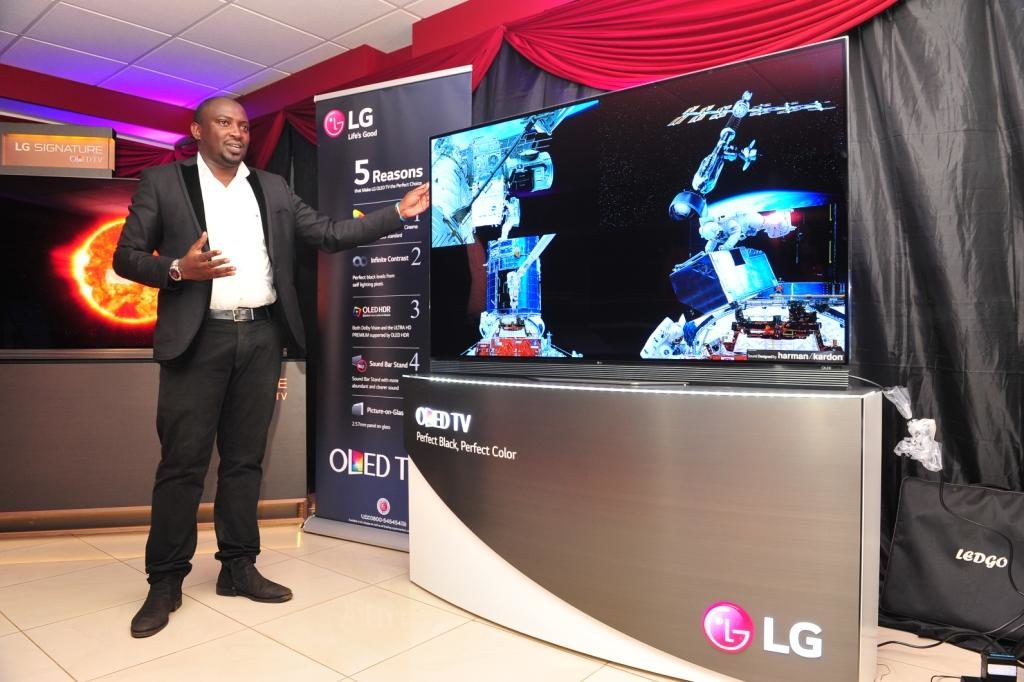LG Electronics announced a strong year with 2020 revenues of USD 56.45 billion (Kshs. 6.2 trillion) and record-setting operating profit of USD 2.85 billion (Kshs. 313 billion), an increase of 31.1 percent over 2019, driven primarily by higher sales of premium home appliances and OLED TVs as well as strong growth in vehicle component solutions.
Sales in the fourth quarter of 2020 of USD 16.76 billion (Kshs. 1.8 trillion) represented an increase of 16.9 percent compared to the same period in 2019, and were 11 percent higher than the previous quarter. Despite the impact of COVID-19, the quarter’s operating profit of USD 580.19 million (Kshs. 63 billion) increased significantly by 539 percent compared to the fourth quarter of 2019. While COVID-19 and slow economic recovery remain concerns for 2021, LG expects the global economy to normalize as countries pursue sound fiscal policies and vaccine rollout to tame infections.
In 2021, core technologies such as AI, 5G, IoT and mobility will be widely applied to various LG business areas to drive growth.
The LG Home Appliance & Air Solution Company ended another healthy year with record 2020 revenues of USD 19.87 billion (Ksh1.9 trillion), an increase of 3.5 percent from the previous year, and a record operating profit of USD 2.10 billion (Kshs. 231 billion). The latest results reflect increased sales of new appliance categories and the home appliance rental business in South Korea. Fourth-quarter revenue of USD 4.94 billion (Ksh 543 billion) was the highest fourth-quarter in the company’s history, an increase of 20 percent year-on-year with double digit growth in South Korea, North America and Europe.
The LG Home Entertainment Company reported 2020 revenues of USD 11.76 billion (Ksh 1.2 trillion) and operating profit of USD 865.29 million (Kshs. 95 billion), a 22.9 percent increase over the previous year. Sales in the quarter of USD 3.82 billion (Kshs. 420.4 billion) were 7.9 percent higher than the fourth quarter of 2019 and up 16.7 percent from the previous quarter. Quarterly operating profit of USD 182.48 million (Kshs. 20 billion) reflected increased sales in North America and Europe.
The LG Mobile Communications Company announced full-year 2020 revenues of USD 4.66 billion (Kshs. 512.6 billion). Fourth-quarter sales of USD 1.24 billion (Kshs. 136.4 billion) were 4.9 percent higher than the same quarter of 2019 but 9.2 percent lower than the previous quarter due to shortages of 4G chipsets and sluggish sales of premium smartphones in overseas markets.
The full-year operating loss for LG Mobile Communications Company totaled USD 750.63 million (Kshs. 82.5 billion), reflecting increased marketing investments to support flagship devices, partially offset by fixed cost reductions due to manufacturing efficiencies.
The LG Vehicle Component Solutions Company reported sales in 2020 of USD 5.18 billion (Kshs. 569.8 billion), growth of 6.1 percent over 2019. Revenues in the fourth quarter of USD 1.71 billion (Kshs. 188 billion) were 41.3 percent higher than the same quarter the previous year driven in large part by the recovery of demand in key automotive markets including North America and Europe and higher sales from new projects.
The modest fourth-quarter operating loss of USD 1.78 million (Kshs. 195.8 billion) improved year-on-year and quarter-on-quarter due to sales increases aligned with the recovery of market demand in the second half, as well as improved cost management.
The LG Business Solutions Company achieved 2020 revenues of USD 5.36 billion (Kshs. 589 billion) with an operating profit of USD 408.51 million (Kshs. 44.8 billion) due to demand growth for IT products related to remote working and online learning. Fourth-quarter sales of USD 1.35 billion (Kshs. 148.5 billion) were 4.8 percent higher than the same period of 2019, while quarterly operating profit was USD 62.73 million (Kshs. 6.9 billion), lower than the previous year due higher prices for major components and global logistic costs.
The market for information displays is expected to improve as global demand recovers while demand for IT products continues to grow. The company’s solar module business is expected to improve with increased demand for renewable energy in major developed markets.

